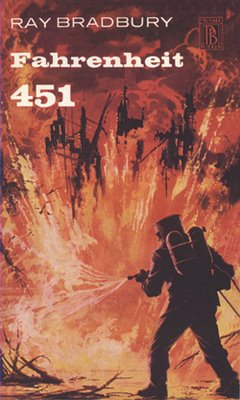 Do we burn the books next?
Do we burn the books next?The story of fireman Guy Montag first appeared in "The Fireman", a short story by Ray Bradbury published in Galaxy Science Fiction in 1951. Montag's story was expanded two years later, in 1953, and was published as Fahrenheit 451. While the novel is most often classified as a work of science fiction, it is first and foremost a social criticism warning against the danger of censorship. Fahrenheit 451 uses the genre of science fiction, which enjoyed immense popularity at the time of the book's publication, as a vehicle for his message that unchecked oppressive government irreparably damages society by limiting the creativity and freedom of its people. In particular, the "dystopia" motif popular in science fiction - a futuristic technocratic and totalitarian society that demands order and harmony at the expense of individual rights - serves the novel well.
Fast Forward to Europe in 2006:
Illiberal Europe
The long and growing list of things you can't legally say.
by Gerard Alexander
.ESPECIALLY SINCE THE 1970s, Western Europeans have been passing bans on speech that "incites hatred" based on race, religion, ethnicity, national origin, and other criteria. These were adopted or beefed up in the 1980s in the face of rising violence against minorities and rising far-right parties like the French National Front. Such laws are now in place in Germany, Austria, Belgium, Sweden, Norway, France, Britain, and elsewhere. France's 1972 Holocaust denial law was expanded by the 1990 Gayssot law, which extended sanctions to denial of other crimes against humanity and points of view deemed racist.... where a stream of rules now prohibits the broadcast, including online, of any program or ad that incites "hatred based on sex, racial or ethnic origin, religion or belief, disability, age or sexual orientation" or--crucially--is "offensive to religious or political beliefs."

No comments:
Post a Comment